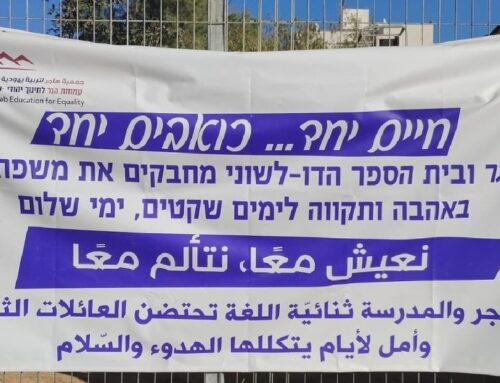 |
| Jaclyn Cohen |
Tonight the Symposium began [with] the fifteen or so participants and three staff members sitting down with Naomi Chazan, a former member of Knesset who served at one point as its deputy speaker. She’s done a whole lot of important things in addition to that role, such as being on the board [and past president] of the New Israel Fund, serving as Dean of the School of Government and Society at the Academic College of Tel-Aviv Yaffo and Director of the Center for the Advancement of Women in the Public Sphere at the Van Leer Institute in Jerusalem. (She’s smart. Incredibly smart.)
She had a lot to say about modern Israeli society, politics, the most recent mulnicipal elections, the growing inequality between the “haves” and “have nots” in Israel (according to her, Israel is no. 2 in that discrepancy, second only to my home country, the US) and the Obama administration’s very clear and public commitment to supporting Israel and helping her and her neighbors reach peace.
It was an intense talk followed by intense questions, and it was during this whole presentation when it really crystallized for me why I’m here.
. . . I represent a demographic that is so deeply, painfully removed from the 55+ers on this trip. I represent a generation that’s at times apathetic, at times deeply confused, perplexed, and torn about Israel, and at times really does care about the Middle East and its political/socioeconomic/global future. My being here is a link (Ms. Chazan talked a lot about linkage) to a group of people who fall into that category. People who are so increasingly overwhelmed by the local and national news that they avoid concerning themelves with global issues. It’s my responsibility as a “young person” to involve myself in these conversations on Israel and global matters and take them to other “young people” back home.
Second, as a soon-to-be rabbi, my concern for Israel is practically built into my s’micha. [Rabbinic ordination] My commitment to Israel is evidenced by the fact that all HUC-JIR rabbinical students spend their first year living in Jerusalem. The connetion to Hebrew, Israeli politics, land, culture, and people should all be motivators for us Reform rabbis. But that’s not always the case. It’s not necessarily conscious: there are plenty of reasons why Israel isn’t always on the discussion table, and most of the time it’s because there are twenty-five other things on the discussion table, too. However, sometimes it is conscious. We want to avoid or placate or maybe we simply feel like it’s going to be too polarizing. As a soon-to-be rabbi I’m realizing more and more how much Israel needs to be put on the discussion table.
. . . It’s not just about the Arab/Israeli conflict – it’s much deeper than that. Domestically, Israel has a lot of growing up to do and, as Ms. Chazan asserted and I agree with, the domestic problems cannot be ignored while looking to create peace with Palestinians.
So. That’s sort of why I’m here.
I think these next six days will be intense and demanding. I am certain they are going to generate some pretty fascinating discussions. And I believe what I believed several weeks back, when I was first presented with the idea to join this Symposium. It’s an incredible opportunity, one in which I feel deeply blessed to participate.






Leave A Comment